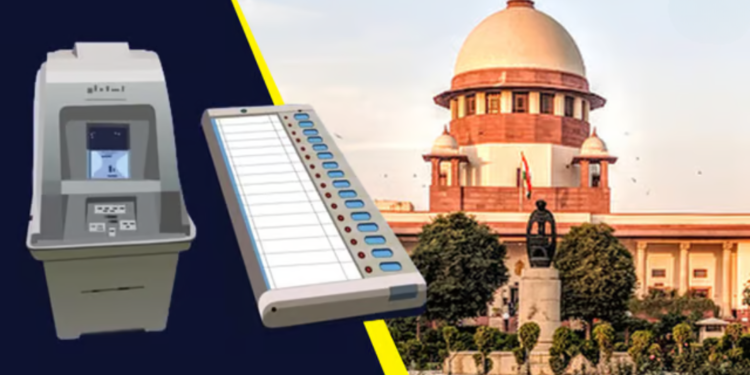The Supreme Court has dismissed a review petition challenging its recent decision to reject a plea for tallying every Voter Verifiable Paper Audit Trail (VVPAT) slip with votes cast through Electronic Voting Machines (EVMs) [Arun Kumar Agarwal v. Election Commission of India and Another].
A division bench comprising Justices Sanjiv Khanna and Dipankar Datta determined that there was no basis for reviewing its April 26 judgment.
“We have carefully perused the review petition, as also the grounds in support thereof. In our opinion, no case for review of the judgment dated 26.04.2024 is made out. The review petition is, accordingly, dismissed,” the Court stated.
Petitioner Arun Kumar Agarwal argued in his review plea that there were errors in the April 26 judgment. He contended that tallying EVM votes with VVPAT slips would not unreasonably delay results or require double the manpower. He also suggested that existing CCTV surveillance in counting halls would prevent manipulation during VVPAT slip counting.
On April 26, the Supreme Court dismissed the plea to tally all VVPATs with EVM votes and rejected the suggestion to revert to a paper ballot system. The Court emphasized nurturing a culture of trust and collaboration to strengthen democracy.
However, the Court directed the Election Commission of India (ECI) to take steps to bolster confidence in EVMs, including:
Sealing symbol loading units (SLUs) after the symbol loading process, with sealed containers kept in strong rooms for 45 days.
Allowing candidates to be present during verification, with district election officers certifying the authenticity of burnt memory.
Checking burnt memory in the micro-controller unit by a team of engineers.
In his review plea, Agarwal argued that these measures were inadequate, highlighting that the SLU is vulnerable and needs auditing. He also claimed the judgment incorrectly noted that 5 percent of VVPAT slips are tallied with EVM votes when, in practice, only 1.97 percent are tallied.

















